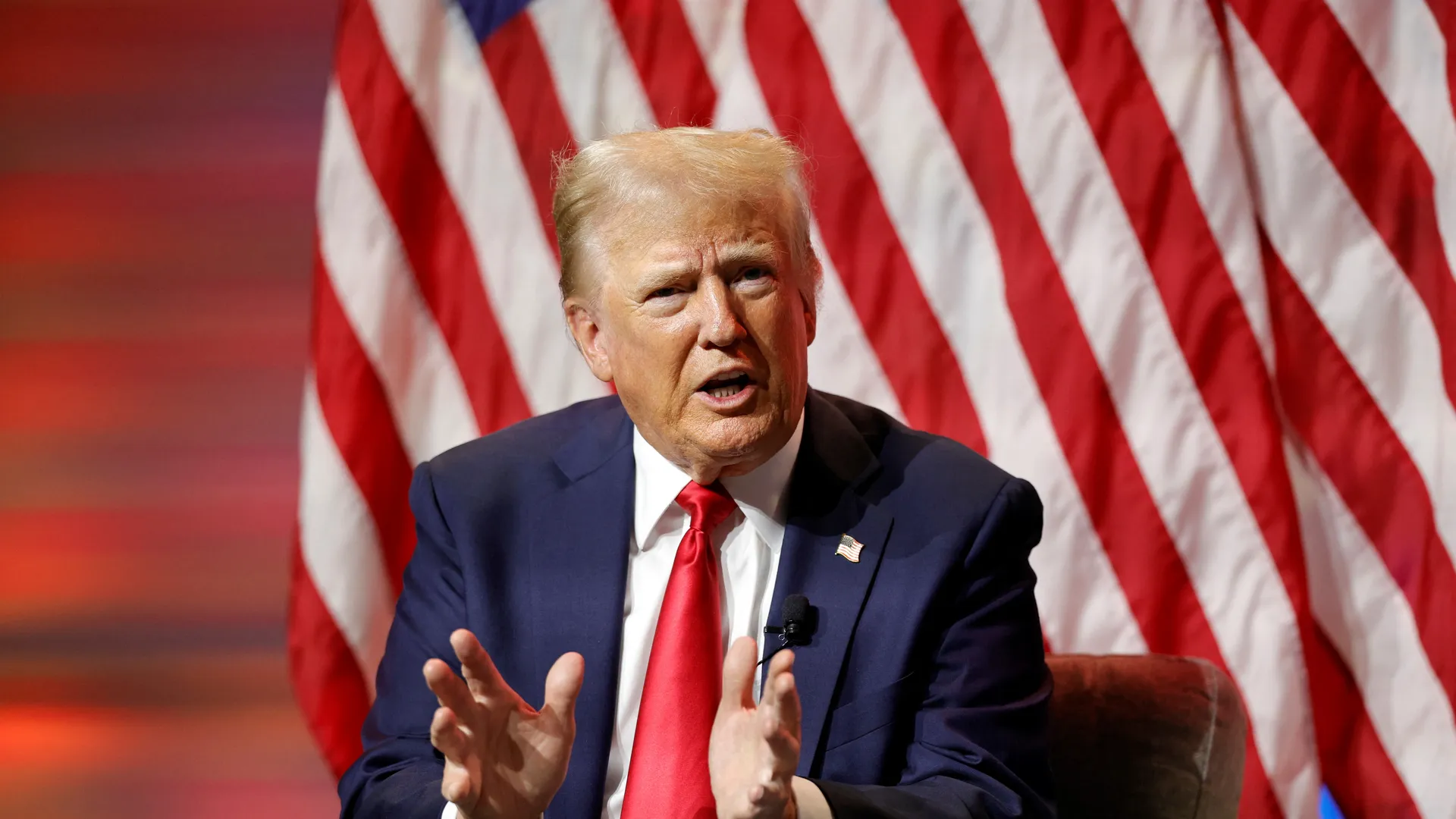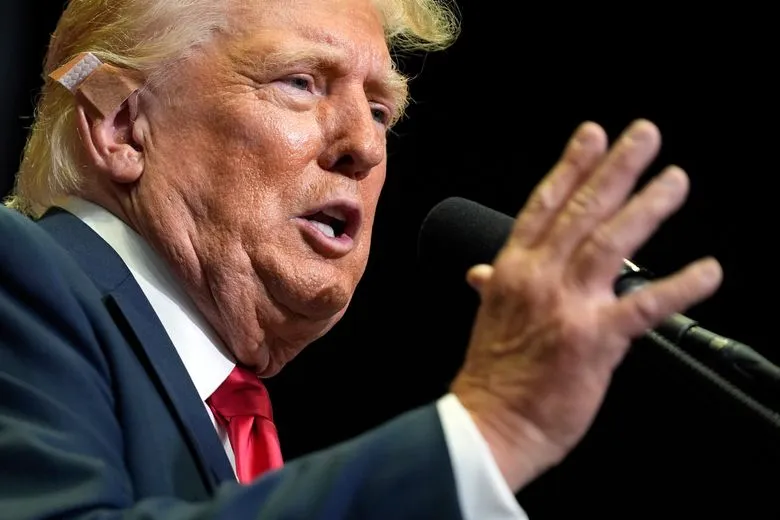
Trump’s 2024 Campaign: A Controversial Focus on Kamala Harris’ Identity

From the onset of his political career, Donald Trump has utilized racially charged rhetoric to galvanize his base. As he gears up for the 2024 presidential election, he has once again stirred controversy by targeting Vice President Kamala Harris’ racial identity. Trump’s recent comments have sparked outrage among Democrats and discomfort within his own party, indicating that race may play a significant role in his campaign strategy.
Trump’s Controversial Remarks
This week, Trump made the inflammatory claim that Vice President Kamala Harris, who has Jamaican and Indian heritage, only recently “turned Black” for political advantage. This baseless accusation has drawn sharp criticism from Democrats and a tepid response from some Republicans, who are wary of the potential backlash.
Despite the discomfort among his allies, Trump’s remarks and his historical use of race as a political weapon suggest that he may continue to employ this strategy in the lead-up to Election Day.
Internal Campaign Dynamics
A Trump adviser, speaking anonymously, stated that the campaign does not need to focus on “identity politics” because Harris’ liberal record provides ample grounds for criticism. The adviser highlighted Harris’ stances on issues like border security, crime, the economy, and foreign policy as areas of vulnerability. However, Trump’s persistent focus on Harris’ race, evidenced by a recent social media post featuring Harris in traditional Indian attire, indicates a potential disconnect between his messaging and his campaign’s strategic objectives.
Republican Senator Cynthia Lummis of Wyoming, a Trump supporter, expressed that rhetoric surrounding race and identity is not beneficial for the election. “People’s skin color doesn’t matter one iota,” Lummis stated, underscoring the need for the campaign to focus on substantive policy issues rather than divisive racial commentary.
The Shift in Campaign Dynamics
Trump’s attacks on Harris’ racial identity come at a time when the dynamics of the election have shifted. Following President Joe Biden’s endorsement of Harris, Trump has had to pivot from opposing an elderly white male incumbent to facing a dynamic Black woman who has energized the Democratic base.
During a recent appearance at the National Association of Black Journalists convention, Trump falsely suggested that Harris had only recently embraced her Black identity for political gain. He questioned, “I didn’t know she was Black until a number of years ago when she happened to turn Black and now she wants to be known as Black. So, I don’t know, is she Indian or is she Black?”
At a subsequent rally in Pennsylvania, Trump’s team displayed old news headlines referring to Harris as the “first Indian-American senator,” attempting to cast doubt on her racial identity. Trump’s running mate, Senator JD Vance, labeled Harris a “chameleon” who changes her identity when convenient, further fueling the controversy.
Harris’ Background and Response
Kamala Harris has consistently spoken about her dual heritage, having attended Howard University, a historically Black institution, and pledged the Alpha Kappa Alpha sorority. Her life and career have been marked by her identity as both Black and Indian American.
Trump’s campaign has argued that his comments on race are part of a broader appeal to Black voters, though few allies have defended his recent rhetoric. Senior Trump campaign adviser Lynne Patton emphasized the contrast between Trump’s record and Harris’ on issues such as cost of living, border security, and public safety.
The Impact of Racial Politics
Veteran Republican pollster Frank Luntz noted that while Harris might be vulnerable to criticism on various grounds, race-based attacks could harm Trump among crucial swing voters. He pointed out that the political landscape has evolved significantly since Trump first gained prominence by questioning Barack Obama’s citizenship.
Eugene Craig, former vice chair of the Maryland Republican Party, acknowledged that Trump’s comments at the NABJ convention achieved the intended reaction but risked alienating Black voters, including Black Republicans. Craig emphasized that “disrespecting Blackness” is unacceptable to Black Americans across the political spectrum.
Trump’s Record on Race
Trump’s political career has been marred by numerous racially charged incidents. From his involvement in the “birther” movement against Obama to his derogatory remarks about Mexican immigrants and his defense of white supremacists in Charlottesville, Trump has repeatedly used race as a tool to attack his opponents.
Despite losing the 2020 election to Biden, Trump remains a polarizing figure. His sweeping victory in the 2024 Republican primary, despite facing multiple criminal charges, demonstrates his continued influence over the GOP.
The Road Ahead
Some Trump critics worry that his racial strategy might still resonate with a significant portion of the electorate. Bill Kristol, a prominent conservative critic of Trump, expressed concern that Trump’s combination of shamelessness, willingness to lie, and racial demagoguery could have an impact, despite hopes to the contrary.
On the other hand, a Harris adviser sees Trump’s attacks as an opportunity to highlight the chaos and division he represents. The adviser believes that focusing on policy rather than engaging with Trump’s racial rhetoric will ultimately benefit Harris’ campaign.
Trump’s decision to center his campaign on Harris’ racial identity reflects a broader strategy that has defined his political career. While this approach may energize his base, it also risks alienating crucial swing voters and further deepening the nation’s divisions. As the election approaches, the effectiveness of this strategy remains to be seen.



